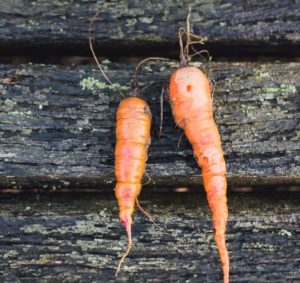The future of food
We are working to create a sustainable and healthy future for all Australians. We predict, prepare and respond to current and future health disruptions. For example, our focus on environmentally sustainable eating and addressing food waste is helping Australians to prepare for and respond to food supply challenges.
Sustainable foods

Climate change is one our greatest global challenges and will increasingly impact on food production. The agriculture industry is one of the largest contributors to environmental degradation through greenhouse gas emissions, water use and land degradation. A sustainable and healthy future for Australia will be facilitated through innovation in food science and nutrition.
Our dietary analysis skills have been applied to assessing the environmental impact of current Australian dietary consumption patterns, including greenhouse gas emissions, water-scarcity footprints and cropland use. Our research has found that discretionary foods (foods that aren’t needed as part of a healthy diet) are the largest food-related contributors to CO2 equivalents and water scarcity footprints in Australia. This highlights a clear synergy between achieving human and planetary health through the reduction of unhealthy, junk foods.
Addressing food waste also provides a unique opportunity to support healthy eating while reducing environmental impact. Despite the known health benefits of a vegetable-rich diet, many people all over the world struggle to meet recommended vegetable intakes. At the same time, root and tuber vegetables are wasted at an alarmingly high rate (up to 60%). The effort it takes to prepare vegetables, along with their flavour and texture, are the major factors that discourage people from eating vegetables. So we collaborated with developers to test a new carrot powder product, made from broken or mis-shaped carrots that were otherwise discarded, to see if it could effectively supplement a person’s vegetable intake compared to a diet of fresh vegetables. This study found a benefit for both human health and the environment and is an example of how cross-disciplinary research can collaborate to find new innovations to address contemporary issues.
If you are interested in collaborating in the assessment of the environmental impact of Australian’s consumption patterns or wish to design or test novel food products, contact us.
Responding to disruption
When new innovations come to market, CSIRO is able to compile scientific dossiers to assist decision-making. For example, the rise in the use of e-cigarettes in Australia prompted the government to investigate their health impacts. CSIRO provided an in-depth systematic literature review on the health impacts of e-cigarettes which contained impartial evidence to inform the Australian Government’s policy decisions.
Do you need an evidence-based review of the health impacts of something? Find out more by talking with one of our experts.
CONTACT US

Dr Malcolm Riley
- Primary EmailMalcolm.Riley@csiro.au
